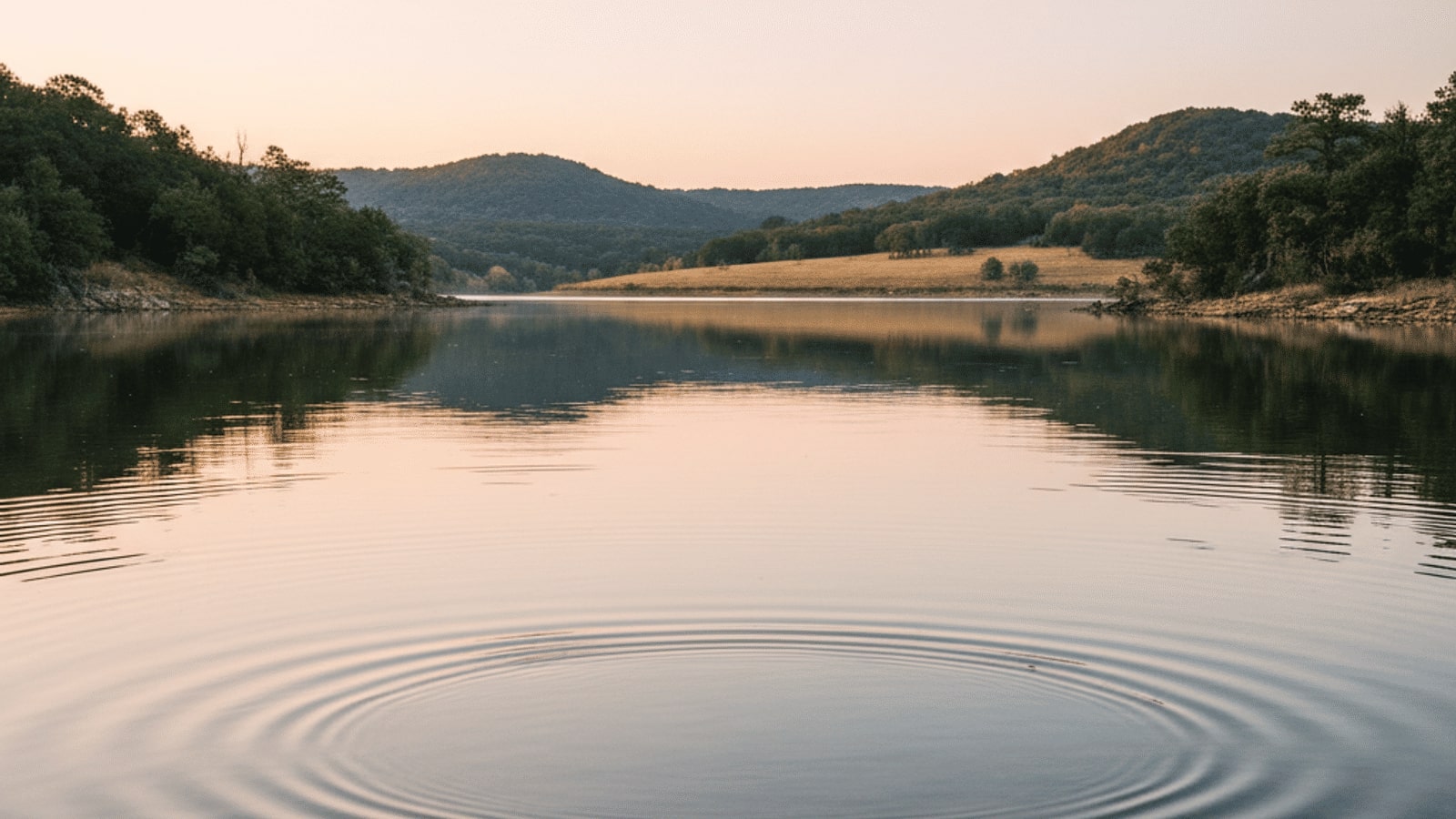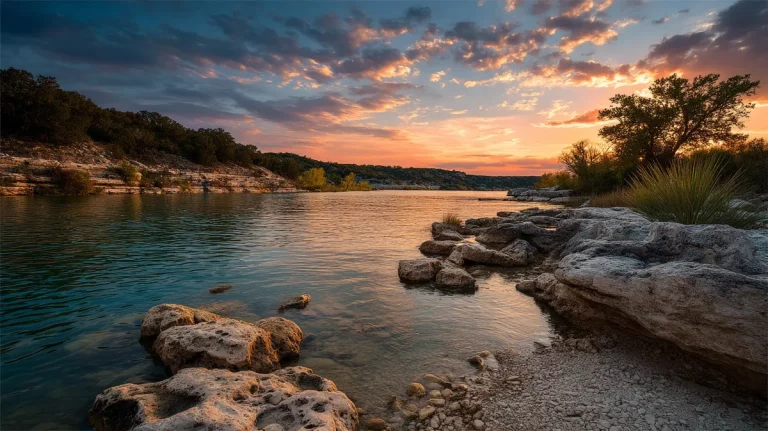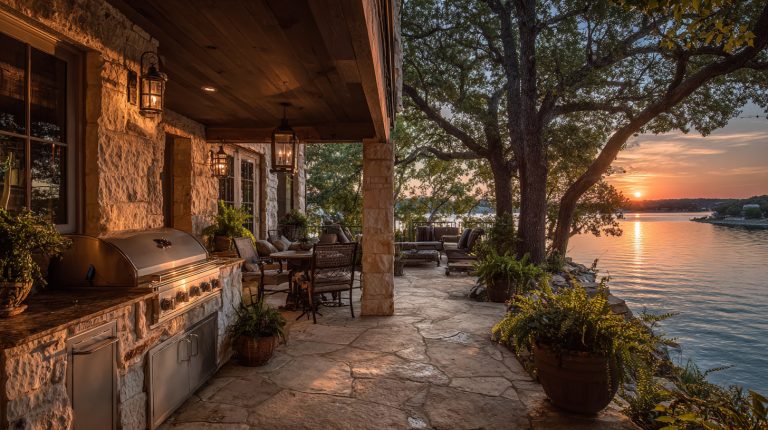Buying your first home anywhere is a big deal. Buying your first home around a 64-mile shoreline with winding roads, changing water levels, and a mix of cabins, custom homes, and hilltop views is a different kind of puzzle.
If you’ve been scrolling listings in Canyon Lake and wondering whether this is realistic for a first-time buyer, this guide is meant to walk you through it like we’re sitting at a table with a map and a lender worksheet.
Quick Guide: How to Buy Your First Home in Canyon Lake
If you just want the high-level steps, here’s the short version before we dig into details.
- Dial in a monthly payment you’re actually comfortable with.
- Talk to a local lender who understands lake-area homes.
- Get pre-approved before you fall in love with a house.
- Choose your “slice” of the lake.
- Write a clean, realistic offer with smart protections.
- Close, file your homestead, and plug into the community.
Is Canyon Lake a Good Place for First-Time Buyers?
Before you start running numbers and scrolling listings, it helps to ask the real question first: is Canyon Lake actually a smart place for a first-time buyer to plant roots?
What makes Canyon Lake different?
Canyon Lake isn’t a typical starter-home suburb, but that doesn’t mean it’s off-limits. People choose it for water, views, and a slower pace instead of being right inside San Antonio or New Braunfels.
You’ll see everything from small cabins on winding, tree-lined streets to newer construction in more traditional subdivisions. Hills, low-water crossings, septic systems, and narrow roads are normal here. A home that looks simple online can have quirks you only catch in person.
For a first-time buyer, you’re not just picking a floor plan—you’re picking a daily rhythm and a set of trade-offs.
Who tends to buy their first home here?
A lot of first-time buyers in the Canyon Lake area fall into a few groups:
- Remote workers who only need to drive into the city occasionally
- Military and medical folks who split the difference between bases/hospitals and the lake
- Couples who want to lock in a “forever weekend place” now and maybe move here full-time later
- Local renters in New Braunfels, San Marcos, or San Antonio who are done paying someone else’s mortgage
If you see yourself in one of those buckets, Canyon Lake is absolutely worth a serious look.
Home Prices and Monthly Costs
Before you start touring homes, it’s worth getting a clear view of the money side—what homes typically cost around Canyon Lake and what kind of monthly payment actually fits your budget.
What price range should I expect?
Instead of chasing exact stats that change every month, it helps to think in tiers and rough ranges:
- Entry-level homes away from the water – Smaller or older homes a bit off the main corridors often land roughly in the high $200Ks to mid-$300Ks if you’re okay with some cosmetic updates. You’ll occasionally see outliers below that, but most “starter” options cluster in that band.
- Updated homes in popular pockets – Clean, move-in-ready homes with newer roofs, HVAC, and kitchens typically fall in about the mid-$300Ks to low-$500Ks, depending on size, lot, age, and how close you are to main roads and everyday conveniences. With the overall median around $475K, this is where a lot of nicely kept primary homes sit.
- Water view, access, and waterfront – A “peekaboo” view up on a hill, a short golf-cart ride to a ramp, and true waterfront are three different conversations. It’s common to see lake-oriented homes starting in the mid-$500Ks and running into the $700Ks+, with premium waterfront or larger custom homes well above that, sometimes into seven figures.
What monthly payment makes sense?
Instead of starting with a price, start with a monthly number that actually fits your life after everything hits your account.
In Canyon Lake, a rough translation at recent interest rates looks something like this for many first-time buyers with a small down payment:
- Homes around $325,000–$350,000
- Principal & interest: roughly $2,050–$2,250/month
- Property taxes: often in the $270–$320/month range
- Home insurance: think roughly $100–$150/month
- Total PITI: roughly $2,400–$2,700/month before utilities
- Homes around $375,000–$425,000
- Principal & interest: roughly $2,400–$2,900/month
- Property taxes: often in the $310–$380/month range
- Home insurance: roughly $120–$170/month
- Total PITI: roughly $2,800–$3,300/month before utilities
Most lenders will look at your debt-to-income ratio (DTI) when they’re deciding how much to approve you for. Depending on the loan type, they may go as high as the low-40% range of your gross monthly income for all debts combined (house, cars, student loans, cards, etc.).
Conventional budgeting advice is usually more conservative—many people aim to keep housing around 25–30% of their gross income, or whatever number still leaves room for savings, emergencies, and fun without stress.
My advice as a local agent:
- Let the bank tell you the maximum they’d approve.
- Then let’s work together to find the comfortable range that fits how you actually live, not just what a formula says.
If you’d like, I can run a few quick scenarios with you—“here’s what $2,400 vs. $2,800/month looks like around Canyon Lake right now”—so you can see what you gain or give up in real listings at each level.
First-Time Buyer Loans and Programs
Financing is where a lot of first-time buyers get stuck—not because they can’t qualify, but because the options feel like alphabet soup. The good news is you don’t need to become a mortgage expert. You just need to know which questions to ask and what’s realistically possible for a first-time buyer around Canyon Lake.
What programs should I ask about?
When you talk to a local lender, tell them you’re a first-time buyer looking in the Canyon Lake area and ask them to walk you through how these options would look for you:
- Conventional loans with 3–5% down
- Good fit if your credit is solid and you want the option to drop mortgage insurance earlier.
- Often the “cleanest” long-term option if you qualify comfortably.
- FHA loans
- Designed to be more forgiving on credit scores and past bumps.
- Can be a great way to get in the door if your profile isn’t perfect yet.
- VA loans (for eligible service members and veterans)
- Often zero down, no monthly mortgage insurance, and very competitive terms.
- If you have VA eligibility, this is almost always worth exploring first.
- Texas statewide assistance programs (like TSAHC and TDHCA)
- Can layer on top of a conventional, FHA, or VA loan to help with down payment or closing costs.
- Often have income and price limits, but many first-time buyers are surprised they qualify.
- USDA loans in certain outlying areas
- Sometimes offer zero-down options if the property and your income fit the guidelines.
- Best for homes in more rural-feeling pockets around the lake.
You don’t have to walk into that conversation with all the answers. Your job is to show up with your income, debts, and savings picture; your lender’s job is to map out which of these tools actually make sense and where the monthly payment lands on each option.
How much down payment do I really need?
The old “you must have 20% down” rule scares a lot of first-time buyers away for no reason. For most people:
- You do not need 20% down to buy a home.
- Many first-time buyers get in with 3–5% down on a conventional loan.
- FHA can work with as little as 3.5% down, sometimes with more flexibility on credit.
- VA and some USDA loans can be zero-down if you qualify.
- Assistance programs can help cover part of your down payment or closing costs, effectively reducing how much cash you need to bring.
The real goal isn’t to hit some magic percentage—it’s to:
- Bring enough to the table that you’re comfortable with the monthly payment.
- Leave yourself a cushion in savings for emergencies, small repairs, and moving expenses.
Qualifying: Credit, Income, and Debt
What does my profile need to look like?
Guidelines differ, but a few themes are consistent:
- Stronger credit scores open more doors, but you don’t need perfect credit to buy.
- Lenders care about your debt-to-income ratio, not just your salary. Car loans, student loans, and credit cards all matter.
- Steady job history in the same line of work is a plus, even if you’ve changed employers.
Sometimes a small tweak—a paid-down card or a cleaned-up collection—can change your approval story. That’s why it helps to talk with a lender a few months before you’re ready to move.
Can I buy with student loans or variable income?
In many cases, yes.
Student loans usually count against you, but lenders often use a set payment amount rather than whatever your current plan is showing. Variable income (tips, bonuses, commissions) can sometimes be used if it shows up consistently over time.
This is where an actual human underwriter and a local lender make a difference compared to a quick online pre-qual.
Local Gotchas First-Timers Miss
There are details you won’t find in a generic “first-time buyer” article:
- Water levels and access points can change how “waterfront” a home feels over the years.
- Many homes are on septic and/or well—inspections and long-term care matter.
- Short-term rental rules vary by subdivision and can affect your future plans and resale value.
- Steep lots, steps, and driveways look great in photos but may not be fun with groceries, kayaks, pets, or bad knees.
- Insurance quotes can swing based on roof age, tree cover, and prior claims.
Looking at homes through that lens keeps you from falling in love with a place that doesn’t actually fit your day-to-day life.
Which inspections matter most here?
On top of the standard home inspection, first-time Canyon Lake buyers should usually plan for:
- A septic inspection and pump-out where applicable
- Well testing for water quality and flow
- Extra attention to roof, foundation, and drainage
- Any specialty inspections your main inspector recommends
A few extra hundred dollars in inspections is almost always cheaper than a surprise project six months after you move in.
How competitive is the market for first-timers?
Good, well-priced homes still draw interest, especially when they’re clean and reasonably close to the water or main commuter routes. Overpriced or tired listings tend to sit—and that’s where patient first-time buyers sometimes find room to negotiate.
Seasonality plays a role. Activity often picks up as the weather warms and people start thinking about boats and summer, but there can be solid opportunities in the off-season when fewer buyers are out.
Should I buy now or wait a year?
There’s no one-size-fits-all answer, but these questions help:
- Will your income, savings, or credit likely be much stronger a year from now?
- Are you renting in a way that’s comfortable, or does it feel like treading water?
- Would owning a home in this market help you build stability and equity, even if rates move around?
Our job together is to model two or three realistic paths and compare—not try to guess the exact top or bottom of the market.
First-Time Home Buyer FAQ – Canyon Lake, TX
Is Canyon Lake a good place for first-time home buyers?
If you love water, views, and a slower pace—and you’re okay with a slightly longer drive and quirks like septic systems—Canyon Lake can be an amazing first home base. If you need a five-minute commute and sidewalks everywhere, we may want to look closer to the city.
Can I buy my first home at Canyon Lake with a small down payment?
Often, yes. Between low-down conventional loans, FHA, VA, USDA in certain pockets, and Texas assistance programs, many first-time buyers use less cash up front than they expected. The structure of the loan matters more than hitting an arbitrary percentage.
Are there “starter neighborhoods” around Canyon Lake?
There are definitely pockets where first-timers cluster—usually a bit farther from the water or in older-but-solid areas where you trade cosmetic updates for a better price. When we sit down, I’ll show you a map and circle a few that fit your budget and commute.
Ready to Plan Your First Place at Canyon Lake?
If Canyon Lake keeps showing up in your searches, it’s probably time for a real conversation.
Here’s what we can do together:
- Look at your comfort-zone monthly payment and reverse-engineer a smart price range
- Narrow the map to a handful of neighborhoods that fit your lifestyle and commute
- Connect you with local lenders who are great with first-time buyers and lake-area homes
- Walk you through houses with an eye on long-term value, not just pretty photos
You don’t have to figure out “first-time home buyer in Canyon Lake” on your own. That’s what I’m here for.





